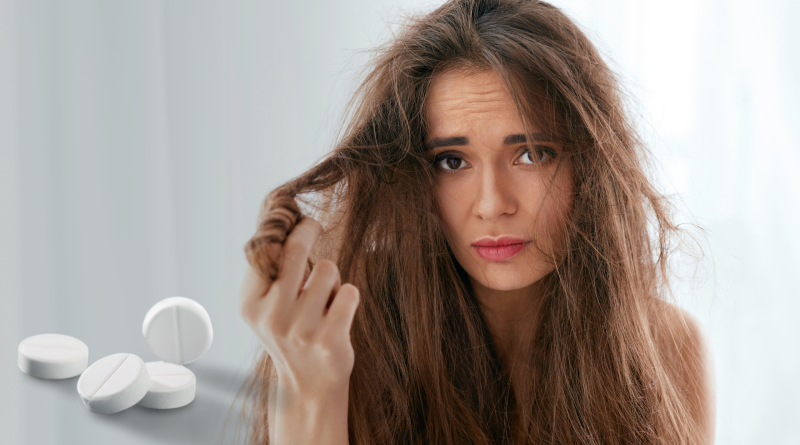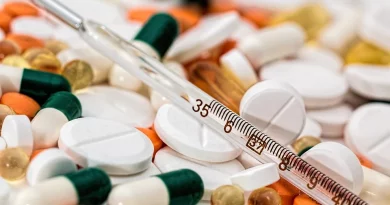How to Restore Thinning Hair: Tips for Fuller, Healthier Hair
Thinning hair can be a frustrating and confidence-shaking experience, but it’s important to know that you’re not alone. Many people struggle with thinning hair at some point in their lives, whether due to genetics, aging, stress, or other factors. The good news is that there are effective strategies and treatments available to help you restore thinning hair and achieve a fuller, healthier look. In this blog, we’ll explore tips and products, including Rogaine 5% from B2B Pharma Hub, that can make a real difference in your hair care routine.
Understanding the Causes of Thinning Hair
Before we dive into the solutions, it’s essential to understand the common causes of thinning hair:
- Androgenetic Alopecia: Also known as male or female pattern baldness, this genetic condition is one of the most common causes of thinning hair. It occurs when hair follicles shrink over time, leading to thinner, shorter, and less pigmented hair.
- Hormonal Changes: Hormones play a significant role in hair health. Changes due to pregnancy, menopause, or thyroid conditions can lead to thinning hair.
- Nutritional Deficiencies: A lack of essential nutrients such as iron, vitamin D, and biotin can contribute to hair thinning.
- Stress: Chronic stress can lead to hair shedding and thinning through conditions like telogen effluvium, where hair prematurely enters the resting phase.
- Aging: As we age, hair naturally becomes thinner and more brittle due to changes in hair growth cycles and decreased production of natural oils.
- Hair Care Practices: Over-styling, excessive use of heat tools, and harsh chemical treatments can weaken hair, leading to breakage and thinning.
Tips for Restoring Thinning Hair
Here are some proven tips to help you restore thinning hair and promote healthier, fuller locks:
1. Use Topical Treatments: Minoxidil (Rogaine)
Minoxidil is a popular and effective topical treatment for thinning hair. Available under the brand name Rogaine, it is FDA-approved and widely used to combat hair thinning and promote regrowth.
- How It Works: Minoxidil works by stimulating blood flow to the hair follicles, encouraging them to enter the growth phase and produce thicker, stronger hair.
- Who Should Use It: Minoxidil is suitable for both men and women experiencing thinning hair due to androgenetic alopecia or other forms of hair loss.
Where to Buy: You can find Rogaine products at B2B Pharma Hub, your trusted source for effective hair care solutions.
2. Incorporate a Balanced Diet
A healthy diet is crucial for maintaining strong, healthy hair. Ensure that your diet includes the following key nutrients:
- Protein: Hair is made primarily of keratin, a type of protein, so consuming enough protein is essential for hair growth. Include lean meats, fish, eggs, and plant-based proteins like beans and lentils in your diet.
- Iron: Iron deficiency is a common cause of hair thinning, especially in women. Boost your iron intake with foods like spinach, red meat, and fortified cereals.
- Vitamins and Minerals: Ensure you’re getting enough vitamins A, C, D, and E, as well as zinc and biotin. These nutrients support hair health and growth.
- Omega-3 Fatty Acids: Found in fish, flaxseeds, and walnuts, omega-3 fatty acids help maintain a healthy scalp and promote hair growth.
3. Be Gentle with Your Hair
The way you treat your hair on a daily basis can have a significant impact on its health and thickness:
- Avoid Over-Styling: Limit the use of heat tools like flat irons, curling irons, and blow dryers. When you do use them, apply a heat protectant to minimize damage.
- Choose the Right Products: Use gentle, sulfate-free shampoos and conditioners that are formulated for thinning hair. Look for products that add volume and nourish the scalp.
- Avoid Tight Hairstyles: Hairstyles that pull on the hair, such as tight ponytails or braids, can lead to traction alopecia, a form of hair loss caused by tension on the hair follicles.
4. Scalp Care is Essential
A healthy scalp is the foundation for healthy hair. Incorporate scalp care into your routine to promote hair growth:
- Regular Scalp Massages: Massaging your scalp increases blood flow to the hair follicles, which can encourage hair growth. Use your fingertips to gently massage your scalp in circular motions for a few minutes each day.
- Exfoliate the Scalp: Just like your skin, your scalp can benefit from exfoliation. Use a gentle scalp scrub to remove dead skin cells and product build-up, which can clog hair follicles and impede growth.
- Keep the Scalp Moisturized: Use oils like jojoba or coconut oil to keep the scalp hydrated and reduce dryness, which can lead to hair breakage.
5. Consider Professional Treatments
If you’re dealing with significant thinning, professional treatments can offer more advanced solutions:
- Low-Level Laser Therapy (LLLT): This non-invasive treatment uses red light therapy to stimulate hair follicles and promote growth. It’s an effective option for both men and women with thinning hair.
- Platelet-Rich Plasma (PRP) Therapy: PRP involves injecting your own blood plasma, rich in growth factors, into the scalp to stimulate hair growth. It’s a popular treatment for those looking to enhance hair thickness and density.
- Hair Transplant Surgery: For those with advanced thinning, hair transplant surgery offers a permanent solution. Healthy hair follicles are transplanted from one part of the scalp to thinning areas, resulting in fuller hair.
6. Manage Stress
Chronic stress can exacerbate hair thinning, so managing stress is crucial for hair health:
- Practice Relaxation Techniques: Incorporate stress-reducing practices like meditation, yoga, or deep breathing exercises into your daily routine.
- Get Regular Exercise: Physical activity not only reduces stress but also improves blood circulation, which benefits your scalp and hair follicles.
- Prioritize Sleep: Aim for 7-9 hours of quality sleep each night to allow your body to repair and rejuvenate, including your hair.
7. Consider Supplements
If your diet isn’t providing enough of the essential nutrients needed for hair growth, consider taking supplements:
- Biotin: Biotin, also known as vitamin B7, is essential for hair health. It strengthens hair and promotes growth.
- Collagen: Collagen supplements can improve hair elasticity and strength, reducing breakage and thinning.
- Multivitamins: A good multivitamin can help fill in any nutritional gaps that may be contributing to hair thinning.
Conclusion: Take Action for Fuller, Healthier Hair
Thinning hair can be a distressing experience, but with the right strategies and products, you can take control and restore your hair’s fullness and health. Whether you opt for topical treatments like Rogaine, available at B2B Pharma Hub, or explore dietary changes, scalp care, and professional treatments, the key is to be proactive and consistent.
Remember, hair growth takes time, so be patient and persistent with your hair care routine. With the right approach, you can achieve thicker, healthier hair and regain your confidence. Start your journey to fuller hair today with B2B Pharma Hub.




